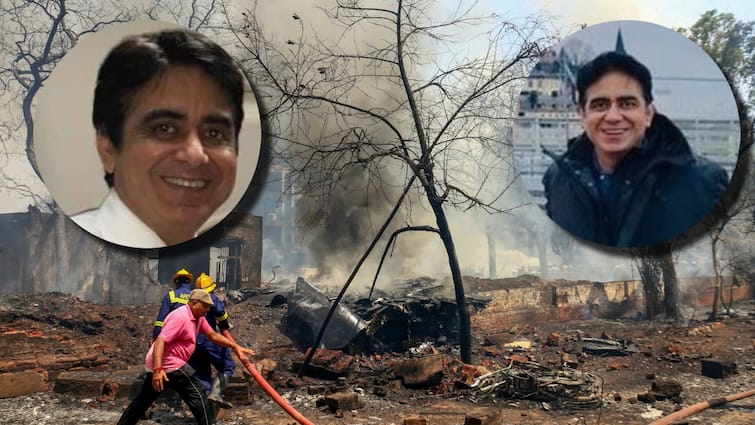Grieving and determined, Pushkaraj Sabarwal, father of late Captain Sumeet Sabarwal, has approached the Supreme Court, seeking a judicially monitored investigation into the Air India flight AI171 disaster that claimed 260 lives, including 241 passengers. He cites a “lack of credibility and transparency” in the ongoing probe, raising serious questions about the integrity of the official investigation.
The writ petition, jointly filed on October 10 by Pushkaraj Sabarwal and the Federation of Indian Pilots (FIP), calls for the formation of a “Court Monitored Committee” to conduct a thorough inquiry into the crash. The petition demands that all previous investigations by the Aircraft Accident Investigation Bureau (AAIB) be treated as closed, with all materials and evidence transferred to a judicially supervised committee or court of inquiry. The proposed panel would be headed by a retired Supreme Court judge and supported by independent aviation and technical experts.
According to the petition, the first plea specifically requests a judicially monitored inquiry into the Boeing 787-8 Dreamliner (registration VT-ANB), which crashed on June 12, 2025, shortly after takeoff from Ahmedabad. The second plea asks that all prior investigations, including the AAIB’s preliminary report dated July 12, 2025, be formally closed and all relevant data handed over to the new committee.
The petition highlights serious concerns with the existing investigation. It alleges selective focus on pilot error, implausible interpretations of fuel switch movements, and failure to investigate potential design-level faults in the Boeing 787. “By fostering a narrative of pilot culpability, the AAIB has compromised the independence, objectivity, and integrity of the investigation, creating serious legal and international liability under ICAO Annex 13,” the filing states.
Pushkaraj Sabarwal, 91, had previously written to the Civil Aviation Secretary and the AAIB Director General, requesting a formal investigation under Rule 12 of the Aircraft (Investigation of Accidents and Incidents) Rules, 2017. This rule empowers the central government to initiate an official inquiry into any Indian-registered aircraft accident if deemed necessary.
The Air India Dreamliner crash is one of the deadliest air disasters in India’s history. It claimed the lives of all 260 people on board, leaving families and the nation in shock. In his August 29 letter, Pushkaraj expressed deep concern over selective leaks and speculations surrounding his son’s mental health, including claims of suicidal intent. He rejected these assertions, noting that Captain Sabarwal had been divorced for over 15 years and that the death of his mother occurred more than three years prior. “Captain Sabarwal operated over 100 flights after that without incident,” the letter stated.
The letter also emphasized Captain Sabarwal’s impeccable aviation record. With more than 15,638 hours of flying experience—including 8,596 hours on the Boeing 787-8—and a spotless safety record over 25 years, he was a Line Training Captain licensed by the DGCA. Pushkaraj argued that the absence of a formal inquiry under Rule 12, combined with selective media leaks, was “disturbing and detrimental,” infringing on fundamental rights, including his late son’s right to reputation.
The AAIB’s preliminary report noted that the aircraft’s fuel supply to both engines was cut off within a single second, creating confusion in the cockpit shortly after takeoff. The cockpit voice recorder captured one pilot asking, “Why did you cut off?” and the other replying, “I did not do so.” While the AAIB cautioned that it was too early to draw definitive conclusions, the preliminary findings fueled public speculation.


